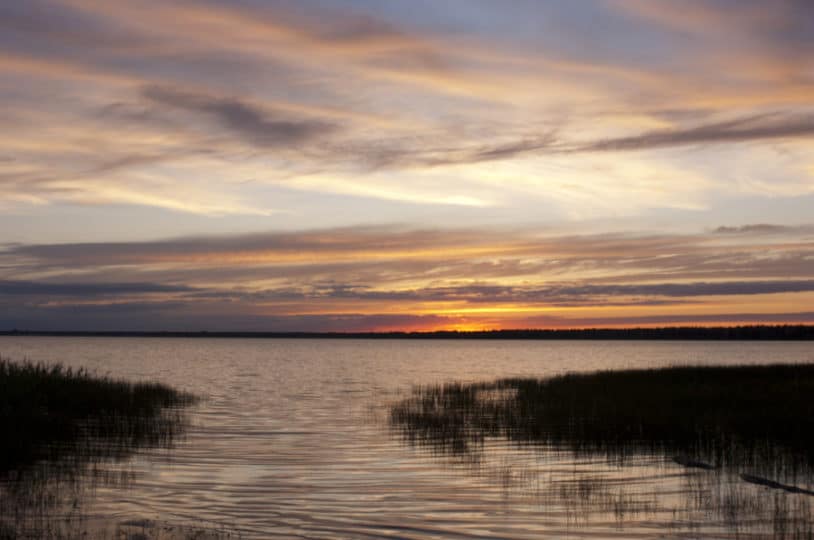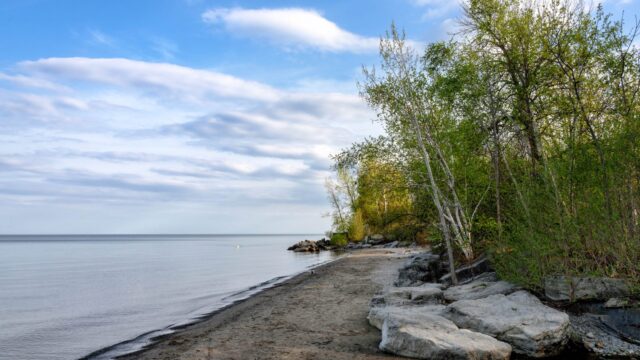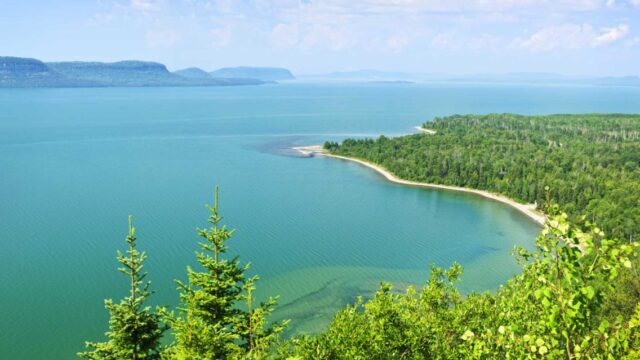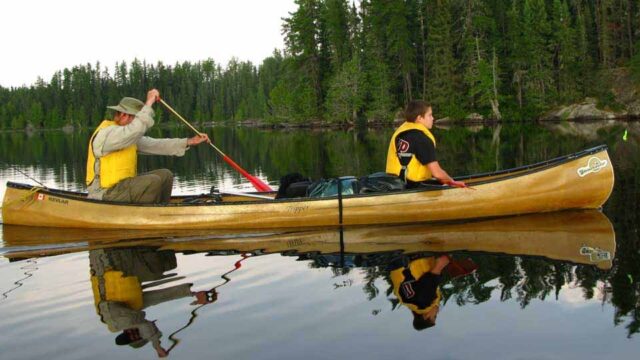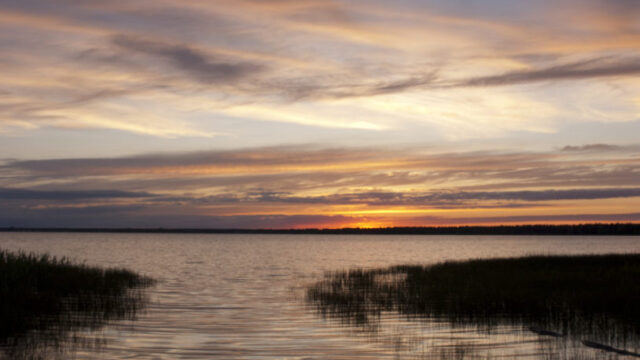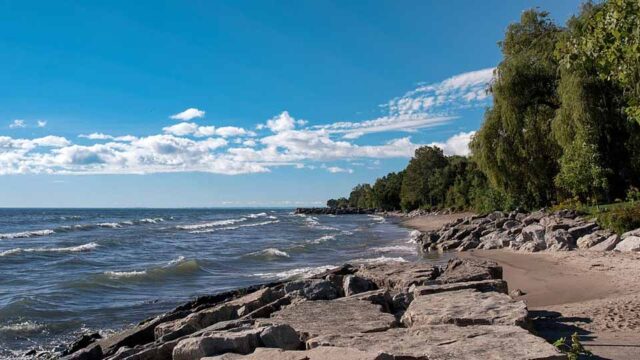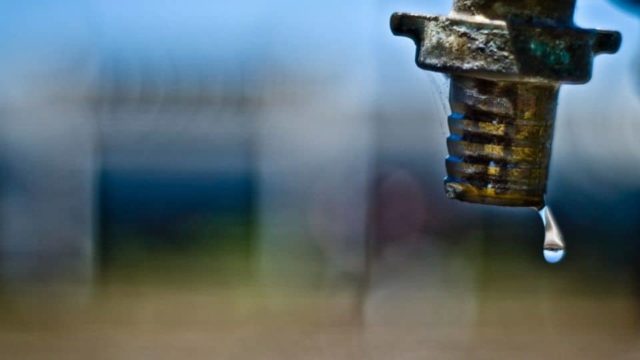The Great Lakes Basin is one of the greatest freshwater ecosystems on Earth.
Today, three of Ontario’s four Great Lakes are in a state of decline. Climate change is leading to an increase in the frequency and intensity of extreme weather events, which wash more pollutants into our waterways and lakes. Pollution, climate change, and agricultural, industrial and residential development have destroyed almost three-quarters of southern Ontario’s historic wetlands. These wetlands provide habitat for species, filter our drinking water, and protect communities from floods. Pollutants from consumer products, including microplastics or microbeads, are being dumped into the water. Once in the water, microbeads are ingested by wildlife, move up the food chain, and act as sponges for contaminants such as DDT, PCBs and flame retardants.
The cumulative effects of these sources of pollution include increased the frequency and intensity of blue-green algal blooms, fish kills, and beach closures. People are increasingly unable to swim in, fish or drink from the waters that are fundamental to the life of so many Ontario communities.
Protection for the Great Lakes Basin was spread across several provincial ministries under various laws and Ontario’s existing policies and programs were falling short. That is why Ecojustice urged the Government of Ontario to introduce the Great Lakes Protection Act (GLPA).
The Act passed in October 2015. It will require the Ontario government to set science-based targets and develop action plans to address the most severe threats to the lakes, such as habitat loss, the influx of invasive species, and mounting toxic pollutants.

